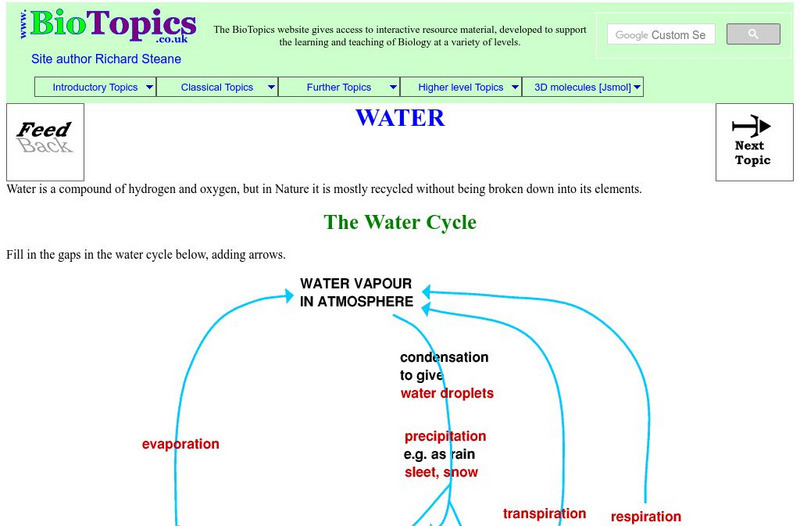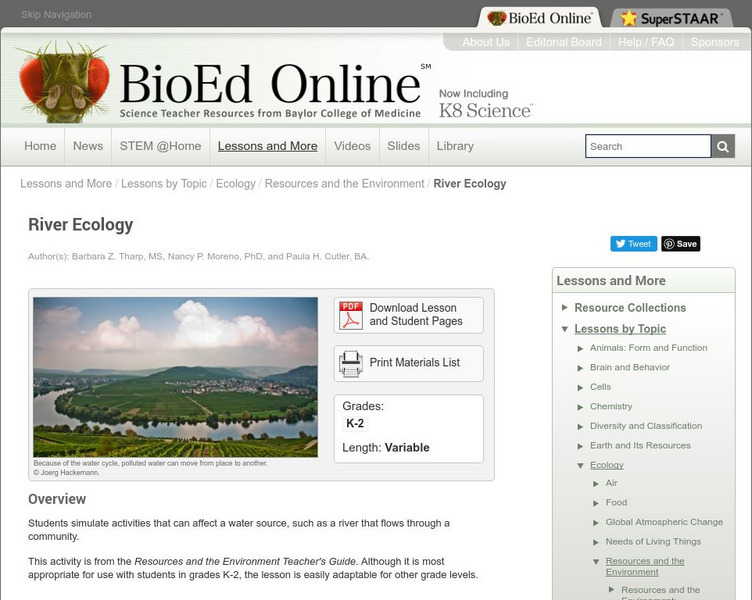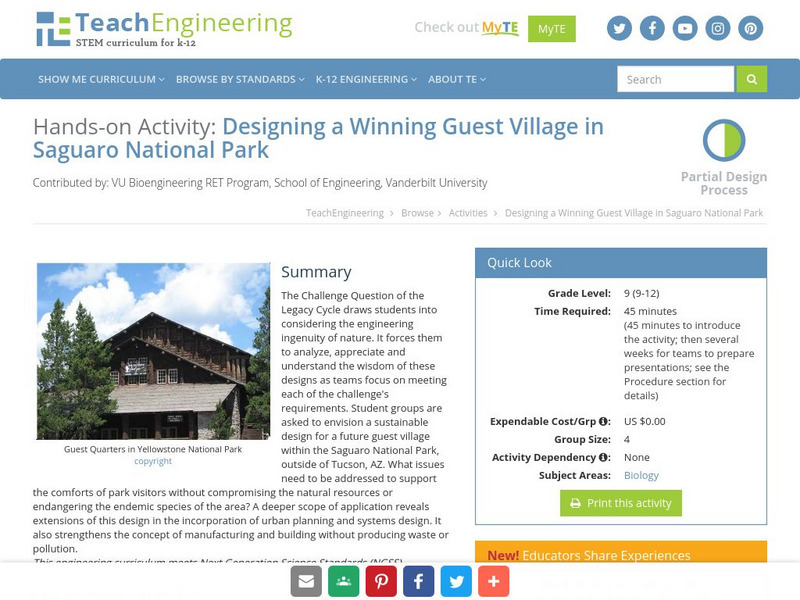Bio Topics
Bio Topics: Water
An interactive worksheet and notes that look at the water cycle, domestic water supply, sewage disposal, water pollution, and air pollution. Useful for student review of material.
CK-12 Foundation
Ck 12: Earth Science: Coastal Pollution
[Free Registration/Login may be required to access all resource tools.] How pollution creates dead zones in the ocean.
CK-12 Foundation
Ck 12: Earth Science: Coastal Pollution
[Free Registration/Login may be required to access all resource tools.] How pollution creates dead zones in the ocean.
NOAA
Noaa: Freshwater
This site is designed to assist the educator in teaching concepts and processes related to freshwater environments and to increase stewardship of these important resources. There are links to resources regarding the Great Lakes...
University Corporation for Atmospheric Research
Ucar: Biogeochemical Cycles
The ways in which an element or compound such as water moves between its various living and nonliving forms and locations in the biosphere is called a biogeochemical cycle. All of the atoms that are building blocks of living things are a...
BioEd Online
Bio Ed Online: River Ecology
In this lesson plan students are required to simulate activities that can affect a water source, such a river as it flows from one place to another within a community.
University of Arizona
University of Arizona: Pulse: Cultures and Cycles: Arsenic and Human Health
Interdisciplinary unit about the risk of exposure to arsenic in public drinking water. Math, language arts, social studies, and science are incorporated into the lessons.
US Geological Survey
Lake Pontchartrain Basin Foundation: Liquid Assets: Our Water Resources
Lessons designed to show students how water quality, water pollution, and personal lifestyle are related. Lessons help students understand the importance of our water resources and water quality. Students will explore the nonpoint and...
PBS
Iowa Public Television: Water Mini Web Quest [Pdf]
Browse the Explore More: Water Quality website to answer these questions about how water is used, who uses it and how these uses impact the quality of water. Find ways to make a difference in water quality through the choices you make.
US Environmental Protection Agency
Epa: Excuse Me, Is This the Way to the Drain Pipe? [Pdf]
Ever wonder where your drinking water comes from? And what happens to it after you're done? "Excuse Me, Is this the Way to the Drain Pipe?" is a great story and lesson plan about a drop of water going through the water cycle and through...
Mocomi & Anibrain Digital Technologies
Mocomi: Major Domains of the Earth Hydrosphere
Learn about the hydrosphere, the water cycle, the major threats to the hydrosphere, and environmental problems.
Science Education Resource Center at Carleton College
Serc: Mn Step: Watersheds Urban and Rural
In this activity young scholars build models of two types of watersheds, one urban and one rural. They will then simulate rain or the water cycle and observe what happens to the 'soil.' This activity leads to discussions about the water...
Government of Alberta
Alberta Environment: Focus on Groundwater: Groundwater Basics [Pdf]
This article explains in detail what groundwater is, why it is important, human activities that affect its quality and quantity, and things we can do to protect it.
Environmental Education for Kids
Eek!: Teacher Resources: Groundwater Study Guide [Pdf]
This study guide is designed to help students begin thinking about groundwater - where it comes from, why it's important, and how it can be conserved and protected. The guide includes a brief overview of groundwater, a glossary, and...
TeachEngineering
Teach Engineering: Designing a Winning Guest Village in the Saguaro National Park
The Challenge Question of the Legacy Cycle draws the student into considering the engineering ingenuity of nature. It will force him to analyze, appreciate and understand the wisdom of these designs as the student team focuses on meeting...
NOAA
Noaa: Estuaries 101 Curriculum: Nutrients in an Estuary
An overload of nutrients, called eutrophication (Greek for "good-nutrition"), can be harmful to estuaries. This phenomenon is also referred to as "over-enrichment," or "nutrient pollution". Students will investigate the range of...
TeachEngineering
Teach Engineering: Environment
Through 10 lessons and more than 20 hands-on activities, students are introduced to the concept of an environment and the many interactions within it. As they learn about natural and human-made environments, as well as renewable and...








![Epa: Excuse Me, Is This the Way to the Drain Pipe? [Pdf] Lesson Plan Epa: Excuse Me, Is This the Way to the Drain Pipe? [Pdf] Lesson Plan](https://content.lessonplanet.com/knovation/original/38691-8e8499c77a908b9761fec8738a536bad.jpg?1661255988)



